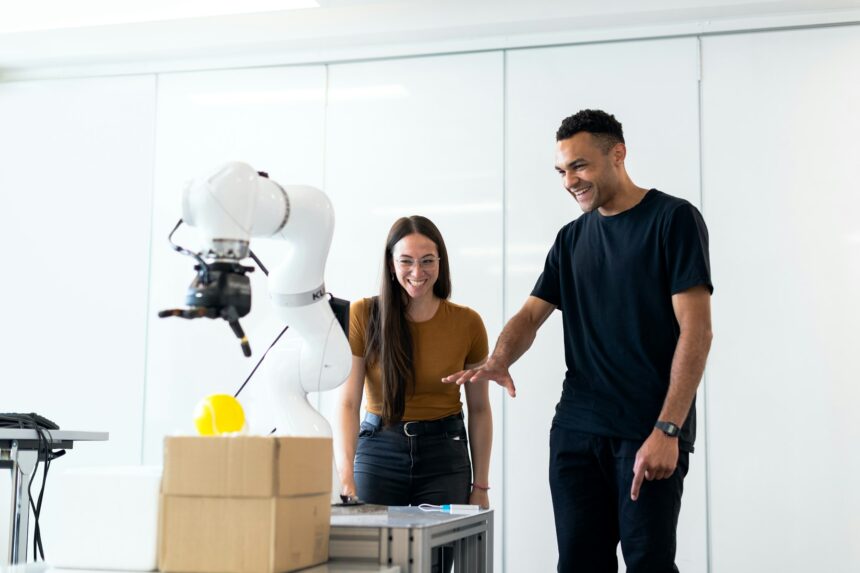Imagine a world where robots are an integral part of our daily lives, assisting us with household chores, enhancing our productivity, and even providing companionship. This is not a distant future but a rapidly approaching reality. Robotics, a field that combines engineering, artificial intelligence, and computer science, is set to revolutionize the way we live and interact with technology.
The Rise of Home Robots
Home robots are becoming increasingly sophisticated and accessible. From robotic vacuum cleaners like Roomba to advanced personal assistants like Amazon’s Alexa, these devices are designed to make our lives easier and more efficient. The future promises even more advanced home robots that can perform a wider range of tasks, from cooking meals to providing elderly care.
Robotic Innovations in Healthcare
Robotics is making significant strides in the healthcare sector. Surgical robots, such as the da Vinci Surgical System, allow for minimally invasive procedures with greater precision. Additionally, robots are being developed to assist in rehabilitation, provide physical therapy, and even perform complex diagnostics. These innovations are not only improving patient outcomes but also reducing the workload on healthcare professionals.
Assistive Robots for the Elderly
One of the most promising applications of robotics in healthcare is in elderly care. Assistive robots can help seniors with daily activities, monitor their health, and provide companionship. These robots are equipped with sensors and AI to detect falls, remind patients to take their medication, and even engage in conversations to reduce feelings of loneliness.
Robotics in Education and Entertainment
Robotics is also transforming education and entertainment. Educational robots, such as LEGO Mindstorms, are being used to teach children programming and engineering concepts in a fun and interactive way. In the entertainment industry, robots are being used to create immersive experiences, from animatronics in theme parks to robotic actors in movies.
Interactive Learning Tools
Robots are becoming valuable tools in the classroom, providing interactive and personalized learning experiences. These robots can adapt to the learning pace of each student, offer instant feedback, and make learning more engaging through gamification.
Future Trends in Robotics
The future of robotics is incredibly exciting, with advancements in AI, machine learning, and sensor technology driving innovation. We can expect to see robots that are more autonomous, capable of complex decision-making, and able to interact with humans in more natural ways. These advancements will open up new possibilities in various fields, from manufacturing to space exploration.
Autonomous Robots
Autonomous robots, capable of operating without human intervention, are set to become more prevalent. These robots can navigate complex environments, perform tasks with high precision, and even learn from their experiences. This autonomy will be crucial in applications such as disaster response, where robots can operate in hazardous conditions to save lives.
“The real problem is not whether machines think but whether men do.”
B.F. Skinner
Challenges and Ethical Considerations
While the advancements in robotics are promising, they also raise important ethical and societal questions. Issues such as job displacement, privacy concerns, and the potential for misuse of robotic technology need to be addressed. It is crucial to develop regulations and ethical guidelines to ensure that the integration of robots into our daily lives is beneficial and safe.
Job Displacement
One of the major concerns with the rise of robotics is the potential for job displacement. As robots become capable of performing tasks traditionally done by humans, there is a risk of unemployment in certain sectors. However, it is also possible that new job opportunities will emerge in the development, maintenance, and oversight of robotic systems.
Privacy and Security
With the increasing presence of robots in our homes and workplaces, privacy and security become critical issues. Robots equipped with cameras and sensors can collect vast amounts of data, raising concerns about how this data is used and protected. Ensuring robust security measures and transparent data policies will be essential to address these concerns.
Conclusion
Robotics is poised to transform our daily lives in profound ways. From home robots that assist with chores to advanced healthcare robots that improve patient care, the possibilities are endless. As we embrace these technological advancements, it is important to consider the ethical implications and ensure that the integration of robots into our society is done thoughtfully and responsibly. The future of robotics is not just about creating machines that can perform tasks but about enhancing the quality of human life.









